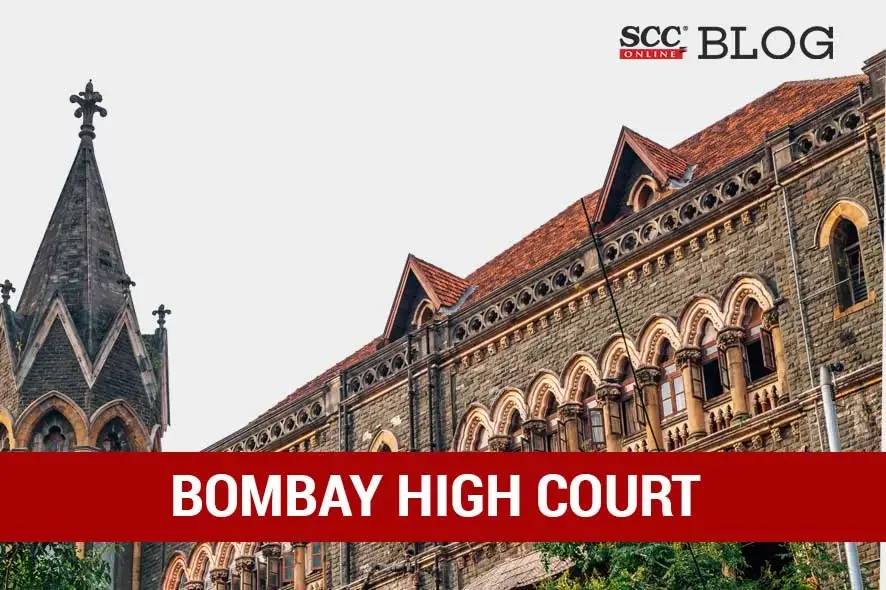Bombay High Court: In an appeal challenging conviction for offences punishable under Section 4 of Protection of Children from Sexual Offences Act, 2012 (‘POCSO Act’) and Sections 376(2)(i) of the Penal Code, 1860 (‘IPC’), the Division Bench of Vibha Kankanwadi and Abhay S. Waghwase, JJ. Pointed out the duty of Investigating Officer and Presiding Officer to make the victims of sexual assault or harassment comfortable and then only proceed with recording their statements. The Court perused the entire evidence and dismissed the instant appeal.
Factual Matrix
The victim went to another city for attending a family event. Her father received a phone call from his nephew requiring him to immediately come. He was told that the victim went out of the house due to nature’s call and returned frightened having injuries near her eyes, hands and back. Since she did not disclose anything about the injuries, his nephew called her father. The victim later disclosed that the accused had forcible sexual intercourse with her, assaulted her and threatened against disclosing the incident to anyone, or she would be killed. After knowing about all this, the father along with the victim went to the police station and lodged First Information Report (‘FIR’).
The Trial Court found the accused guilty and sentenced him to undergo rigorous imprisonment for life with fine of Rs 10,000 under Section 4 of POCSO Act, rigorous imprisonment of 12 years with fine of Rs 10,000 for offence under Section 376(1)(2)(i) of IPC, and rigorous punishment of 2 years with fine of Rs 2000 for offence under Section 506 of IPC, all the sentence to run concurrently. This punishment was challenged in the instant matter.
Court’s Analysis of Evidence in POCSO matter
The Court went on to scan the evidence and noted that the victim was only 14-years-old and the Trial Judge was precautious on whether she could understand the questions to be put to her, and accordingly got her testimony recorded. She gave her date of birth as 25-05-2001, corroborating to the School Leaving Certificate (‘SLC’). The Court perused her statement regarding the incident and pointed out that in her statement, she stated that when her father came, she did not disclose anything, but her father understood everything after noticing her face and took her to the police station, not mentioning anything about going back to home and narrating the incident to her mother.
Identification of accused by the victim
The Court highlighted that “She was certain in saying that the boy was from out of village, and she is unable to tell his name and after the incident he ran away. Only on the basis of this statement, we cannot come to the conclusion that the identification of the accused by the victim is false or inadmissible. A witness may not be knowing name of the accused, but thereafter with the description or some other particulars like relative of somebody to whom the witness is knowing or would have seen residing in a particular place are the criteria with which the identity can be established.” The Court did not find any fault with the identification of the accused. It further said that although in her initial statement, she did not mention the name of the accused, who was not before her at that time, which made the identification important rather than the name.
POCSO victim’s evidence
Regarding the initial non-disclosure of certain facts, the Court considered her tender age and that she would have felt embarrassed to tell some facts. The Court expressed that “It is rather the failure on the part of the investigating officer to get the proper statement of such victim. In such cases, the investigating officer should make the girls comfortable and then try to take the statements….. It is the duty of the investigating officer as well as the presiding officers, whoever is recording the statement of the victims of sexual assault or harassment, to make the victims comfortable and then only record their statements.” The Court also denied arguments on delay in lodging FIR and acknowledged that “the girl could be made comfortable only after the arrival of her mother, which is but natural.”
Age determination of victim under POCSO Act
The Court went on perusing the medical evidence of both the victim and the accused, victim’s father’s evidence, evidence of headmaster of victim’s school for record of date of birth. The Court relied on P. Yuvaprakash v. State, 2023 SCC OnLine SC 846 regarding three documents for determination of age in POCSO matters in accordance with Section 94 of Juvenile Justice (Care and Protection of Children) Act, 2015. In the instant case, there was no birth certificate, there was an SLC but not issued by first school in which admission was taken (she was admitted there in class 5), no ossification test was conducted. The Court expressed that the question of ossification test would have come when the girl was on the border line. It explained that “When there is still margin of four years, it cannot be said that the girl was not a “child” as defined under Section 2(d) of the POCSO Act.” The Court suggested that the father could be relied upon for having knowledge of her date of birth, while the prosecution had proved that the victim was a child.
Conclusion
Considering testimonies of all the witnesses, the Court opined that the prosecution had proved the accused to be the person who raped the minor victim and found no perversity in the conclusion arrived at by the Trial Court. Therefore, the Court dismissed the instant appeal.
[Sunil v. State of Maharashtra, 2023 SCC OnLine Bom 2119, decided on 3-10-2023]
Judgment by: Justice Vibha Kankanwadi
Advocates who appeared in this case :
For Appellant: Advocate Pradeep K. Palve
For State: Additional Public Prosecutor A.M. Phule









